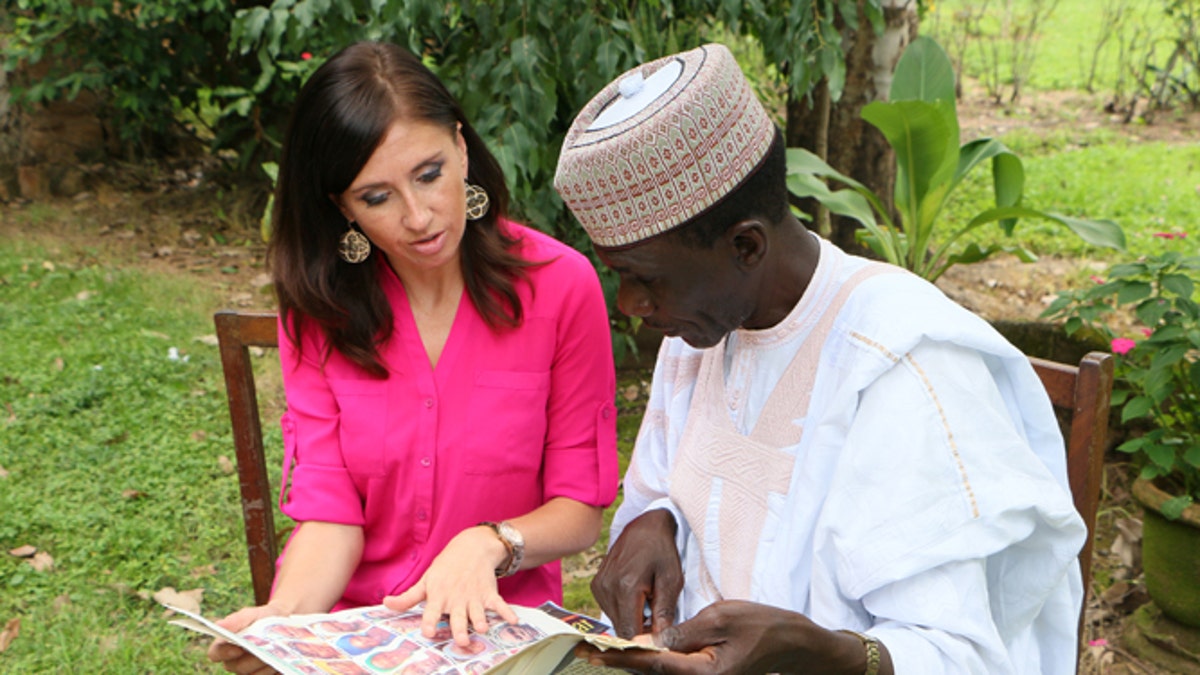
The author talking with a Chibok father in Nigeria. (Courtesy Open Doors USA)
It’s been a year and a half since the story of the kidnapped Chibok girls captured international attention. Friday, as reports surface that one of the girls may have escaped her Boko Haram captors, I find myself thinking of her father.
That’s because just two weeks ago in Jos, Nigeria, I sat with 10 of the Chibok fathers, hearing firsthand of the horror they have experienced in losing their daughters, the turmoil of wondering daily where they are and what might be happening to them, and perhaps most surprisingly, the peace they have found in the midst of despair.
“Sometimes, for a short time, I can feel okay,” one father told me. “When I’m with my family or when I’m with my church. But when I’m alone,” he added, his voice unsteady, “It all comes back.”
He paused for a moment, then put head in his hands and wept quietly, softly saying over and over through tears, “I miss her, I miss her, I miss her.”
I’m often asked by those who hear about my experiences in Nigeria, “What can we do to help?” We can listen. We can pray. We can be a voice calling for action by the Nigerian government, demanding they do everything possible to find the girls and bring them home.
Since the mass kidnapping of the girls, their fathers now live on high alert, forced to take extreme measures to protect their families. The fathers of the Chibok girls line the outskirts of their town nightly, sleeping there in order to be the first line of defense against a Boko Haram attack.
Each time they hear reports of a girl escaping the clutches of Boko Haram, the fathers travel together to Internally Displaced People (IDP) camps, examining the faces to see if – just maybe – this time they will find their own daughter.
When asked, “Where do you think your daughter is?” one father said simply, “She is in the Lord’s hands.” The faith of these men is remarkable to me. It brings them a peace I can’t describe.
Chibok is so dangerous that most NGOs are unable to work there. Open Doors is one of the few organizations providing trauma counseling and basic support to the families of the missing girls. Last year, American Open Doors supporters wrote letters of encouragement that were hand-delivered to the families in Chibok. Open Doors is currently launching an advocacy campaign urging the Nigerian government to do more to help find the Chibok girls and reunite them with their families.
Now that I am back at home in the U.S., I’m often asked by those who hear about my experiences in Nigeria, “What can we do to help?” We can listen. We can pray. We can be a voice calling for action by the Nigerian government, demanding they do everything possible to find the girls and bring them home.
The Chibok fathers I spoke with were encouraged simply knowing that their stories are being shared and that their daughters are remembered in prayer throughout the world. November 1 marks the International Day of Prayer for the Persecuted Church – but please don’t wait until then to pray for these families.
I feel overwhelmed by my life-changing experience in central Nigeria. I feel helpless and empowered all at the same time. I cannot reunite these fathers with their daughters.
I cannot rescue these young women from their captors or bring their abductors to justice. But, I can tell their stories.
I can share what I saw, heard and experienced. And today I want to encourage you to pray and speak out for these precious missing girls—and for the fathers and families who love them.
Let’s stand with them in prayer and action.
